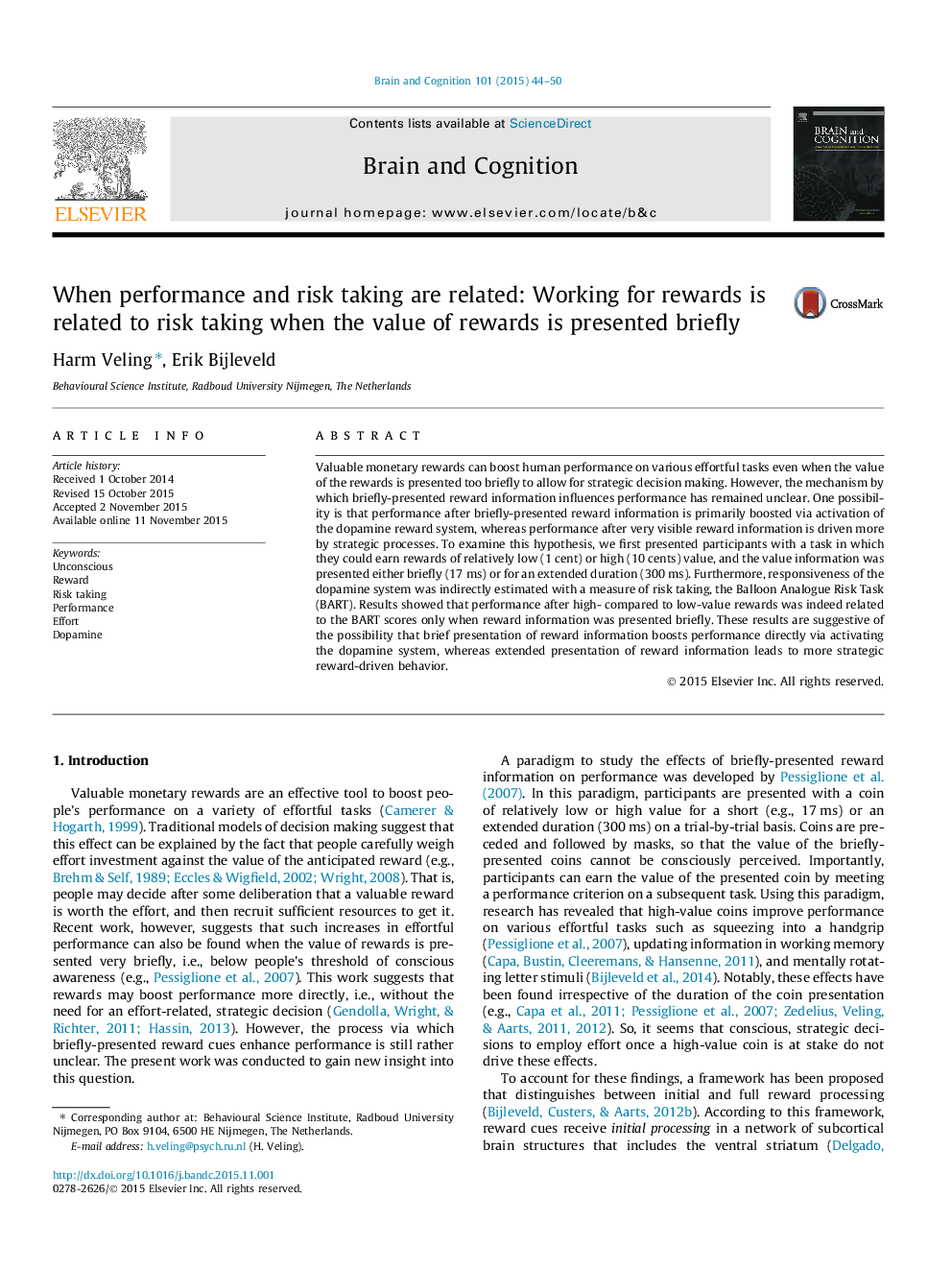| کد مقاله | کد نشریه | سال انتشار | مقاله انگلیسی | نسخه تمام متن |
|---|---|---|---|---|
| 923911 | 1473970 | 2015 | 7 صفحه PDF | دانلود رایگان |
• Risk taking is related to sensitivity of the mesolimbic dopamine system.
• Effortful performance after briefly presented rewards is related to risk taking.
• Effortful performance is not related to risk taking when rewards are clearly visible.
• Briefly presented rewards may boost performance directly via the dopamine system.
Valuable monetary rewards can boost human performance on various effortful tasks even when the value of the rewards is presented too briefly to allow for strategic decision making. However, the mechanism by which briefly-presented reward information influences performance has remained unclear. One possibility is that performance after briefly-presented reward information is primarily boosted via activation of the dopamine reward system, whereas performance after very visible reward information is driven more by strategic processes. To examine this hypothesis, we first presented participants with a task in which they could earn rewards of relatively low (1 cent) or high (10 cents) value, and the value information was presented either briefly (17 ms) or for an extended duration (300 ms). Furthermore, responsiveness of the dopamine system was indirectly estimated with a measure of risk taking, the Balloon Analogue Risk Task (BART). Results showed that performance after high- compared to low-value rewards was indeed related to the BART scores only when reward information was presented briefly. These results are suggestive of the possibility that brief presentation of reward information boosts performance directly via activating the dopamine system, whereas extended presentation of reward information leads to more strategic reward-driven behavior.
Journal: Brain and Cognition - Volume 101, December 2015, Pages 44–50
